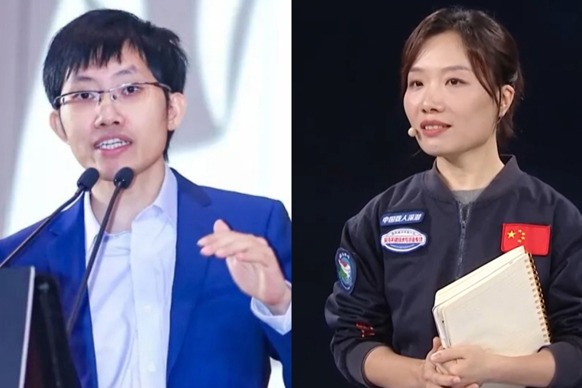Netanyahu's terms cast doubts over Gaza truce
By JAN YUMUL in Hong Kong | China Daily Global | Updated: 2024-07-09 09:10

The cease-fire talks between Palestinian militant group Hamas and Israel have seen its momentum dented after Israeli Prime Minister Benjamin Netanyahu issued a list of "nonnegotiable" conditions in relation to Israel's objectives in Gaza, despite international calls amid heavy casualties and humanitarian disasters.
The news came after Hamas delivered its acceptance of three-phase arrangements to negotiator countries, the United States, Egypt and Qatar, while Israel continued its bombardment in Gaza, with Palestinian families fleeing their homes and hospitals and Israeli settlers bulldozing the northern entrance of Palestinian city Salfit in the occupied West Bank, Wafa News Agency reported.
Late on July 7, Netanyahu presented a list of Israeli demands just as the Israeli negotiating team was preparing to depart for further talks in Cairo and Doha expected later this week.
According to a statement published on the Israeli prime minister's website, it was Netanyahu's "steadfast position" against the attempt to halt Israel Defense Forces' action in Rafah that "led Hamas to enter negotiations".
It noted that any deal would allow Israel to resume fighting "until all of objectives of the war have been achieved". There would also be "no smuggling of weapons to Hamas from Egypt to the Gaza border" and no return of "thousands of armed terrorists to the northern Gaza Strip".
Also, Israel would "maximize the number of living hostages who will be released from Hamas captivity".
"The plan that has been agreed to by Israel and which has been welcomed by (United States President Joe Biden) will allow Israel to (retrieve) hostages without infringing on the other objectives of the war," said the statement.
Israeli opposition leader Yair Lapid, on his X account, questioned the timing of what he referred to as "provocative messages" from the Netanyahu government, pointing out that all parties were in "a critical moment in the negotiations" and that "the lives of the (Israeli) abductees depend on it".
Losing faith
Soon after Netanyahu's announcement, The Times of Israel reported that Sharon Alony Cunio, a freed hostage whose husband was still being held in Gaza, said she was "losing faith".
"I was very optimistic, but as the days pass you suddenly notice that the messages that come out are more focused on the gaps (between the sides)," she was quoted as telling Army Radio. "Don't jeopardize the deal with statements."
Cunio, along with her 3-year-old twin daughters, was freed from Gaza in November following an Israel-Hamas prisoner swap deal.
The Times of Israel also reported that the statement from Netanyahu's office was met with anger by Israeli security officials and mediators who reportedly accused the prime minister of trying to sabotage the deal.
It was widely reported over the weekend that Hamas had dropped a demand that Israel first commit to a permanent cease-fire before signing the agreement, and accepted a proposal from Washington to resume talks on releasing Israeli hostages, including soldiers.
Abdul Wahed Jalal Nori, an analyst and lecturer at the Department of Fundamental and Inter-Disciplinary Studies at the International Islamic University Malaysia, told China Daily that the tough stance taken by Netanyahu might "risk derailing the talks "because Hamas will view the new conditions as "unacceptable".
"The more Netanyahu insists on continuing the conflict, the deeper the enmity grows," said Abdul Wahed.
He said Hamas' willingness to enter the negotiations is aimed at ending the hostilities, with an initial cease-fire followed by discussions on issues like blockade-lifting and reconstruction aid.
"If those things are not achieved, the conflict will continue. Therefore, a more balanced strategy, incorporating security concerns with genuine humanitarian considerations and diplomatic flexibility, might offer a better path toward lasting peace and stability," said Abdul Wahed.
jan@chinadailyapac.com
























